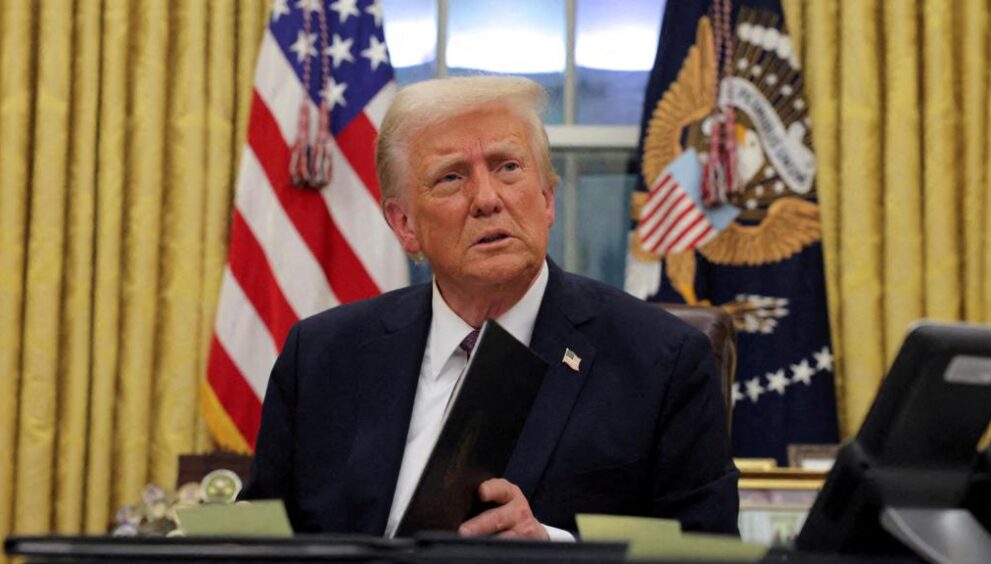President Donald Trump expressed uncertainty about whether all individuals in the United States are entitled to constitutional due process rights, especially in the context of immigration enforcement. His comments come as he continues to advocate for strong border security and efficient deportation of those in the country illegally.
In an interview with mainstream media, Trump was asked about remarks by Secretary of State Marco Rubio, who recently stated that everyone in the U.S. should be afforded due process. In response, Trump said, “I don’t know. I’m not, I’m not a lawyer. I don’t know,” pointing to the overwhelming strain the legal system would face if every immigration case required a trial. “We’d have to have a million or 2 million or 3 million trials,” he said.
Trump clarified that his legal team would follow the guidance of the U.S. Supreme Court on the matter.
In April, the Supreme Court temporarily paused the deportation of several Venezuelan nationals alleged to be involved in gang activity. The Trump administration has invoked emergency legal authority typically used during wartime and requested that the court reconsider or limit its ruling.
In legal filings, Solicitor General D. John Sauer emphasized that those facing deportation had been given proper notice and time to seek judicial review.
Additionally, the Supreme Court directed the administration to assist in returning a Salvadoran man who was mistakenly deported. That individual, Kilmar Abrego Garcia, is currently being held in El Salvador. A federal judge has asked the administration to provide updates on its efforts to bring him back to the U.S.
During the same interview, Trump addressed speculation about seeking a third presidential term, stating, “It’s not something I’m looking to do,” and acknowledged that the Constitution limits presidents to two terms. Trump has occasionally made comments that have stirred speculation, but he reaffirmed his understanding of and respect for constitutional limits.



